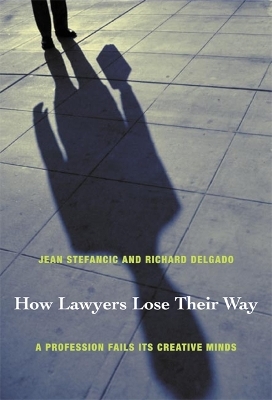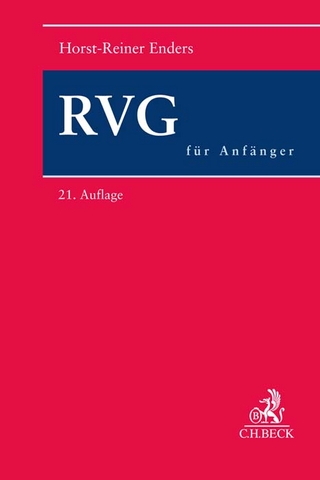
How Lawyers Lose Their Way
Duke University Press (Verlag)
978-0-8223-3454-5 (ISBN)
- Titel z.Zt. nicht lieferbar
- Versandkostenfrei innerhalb Deutschlands
- Auch auf Rechnung
- Verfügbarkeit in der Filiale vor Ort prüfen
- Artikel merken
In this penetrating book, Jean Stefancic and Richard Delgado use historical investigation and critical analysis to diagnose the cause of the pervasive unhappiness among practicing lawyers. Most previous writers have blamed the high rate of burnout, depression, divorce, and drug and alcohol dependency among these highly paid professionals on the narrow specialization, long hours, and intense pressures of modern legal practice. Stefancic and Delgado argue that these professional demands are only symptoms of a deeper problem: the way lawyers are taught to think and reason. They show how legal education and practice have been rendered arid and dull by formalism, a way of thinking that values precedent and doctrine above all, exalting consistency over ambiguity, rationality over emotion, and rules over social context and narrative.Stefancic and Delgado dramatize the plight of modern lawyers by exploring the unlikely friendship between Archibald MacLeish, who gave up a successful but unsatisfying law career to pursue his literary yearnings, and Ezra Pound. Reading the forty-year correspondence between MacLeish and Pound, Stefancic and Delgado draw lessons about the difficulties of attorneys trapped in worlds that give them power, prestige, and affluence but not personal satisfaction, much less creative fulfillment. Long after Pound had embraced fascism, descended into lunacy, and been institutionalized, MacLeish took up his old mentor’s cause, turning his own lack of fulfillment with the law into a meaningful crusade and ultimately securing Pound’s release from St. Elizabeths Hospital. Drawing on MacLeish’s story, Stefancic and Delgado contend that literature, public interest work, and critical legal theory offer tools to contemporary attorneys for finding meaning and overcoming professional dissatisfaction.
Jean Stefancic is Research Professor at the University of Pittsburgh School of Law, where both are Derrick Bell Fellows. Stefancic and Richard Delgado have written and edited numerous books together, including Understanding Words that Wound, Critical Race Theory: An Introduction, and No Mercy: How Conservative Think Tanks and Foundations Changed America’s Social Agenda. Richard Delgado is Professor at the University of Pittsburgh School of Law, where both are Derrick Bell Fellows. Among Delgado’s books are When Equality Ends: Stories about Race and Resistance and The Rodrigo Chronicles: Conversations about America and Race, which was nominated for a Pulitzer Prize.
Acknowledgements ix
Introduction: Why Are Lawyers So Unhappy? xi
Part I: Panthers and Pinstripes 3
1. The Caged Panther: Ezra Pound 5
2. Pinstripes: Archibald MacLeish 12
Part II: Discontents 31
3. Formalism: A New/Old Disease 33
4. Lawyers and Their Discontents 47
5. Lawyers’ Lives 62
6. Other Professions: Medicine 72
7. High-Paid Misery 77
Notes 87
Index 135
| Zusatzinfo | 2 b&w photos |
|---|---|
| Verlagsort | North Carolina |
| Sprache | englisch |
| Gewicht | 354 g |
| Themenwelt | Recht / Steuern ► EU / Internationales Recht |
| Recht / Steuern ► Privatrecht / Bürgerliches Recht ► Berufs-/Gebührenrecht | |
| ISBN-10 | 0-8223-3454-2 / 0822334542 |
| ISBN-13 | 978-0-8223-3454-5 / 9780822334545 |
| Zustand | Neuware |
| Haben Sie eine Frage zum Produkt? |
aus dem Bereich


